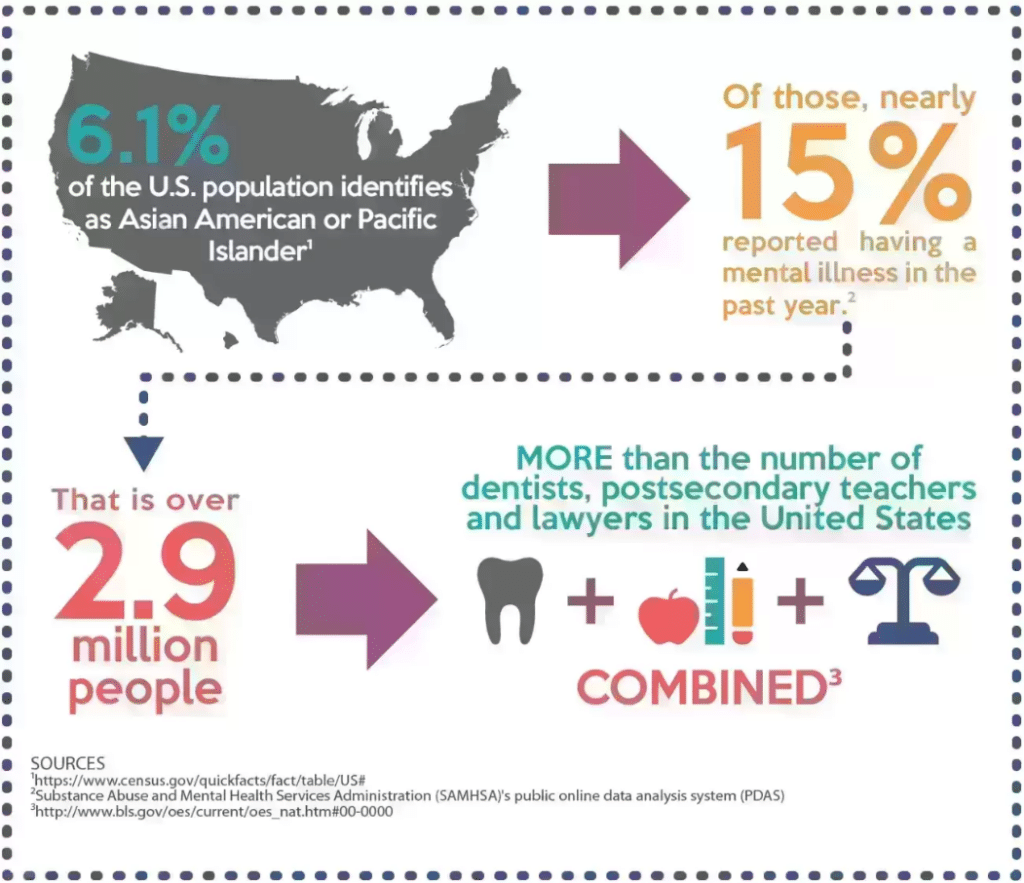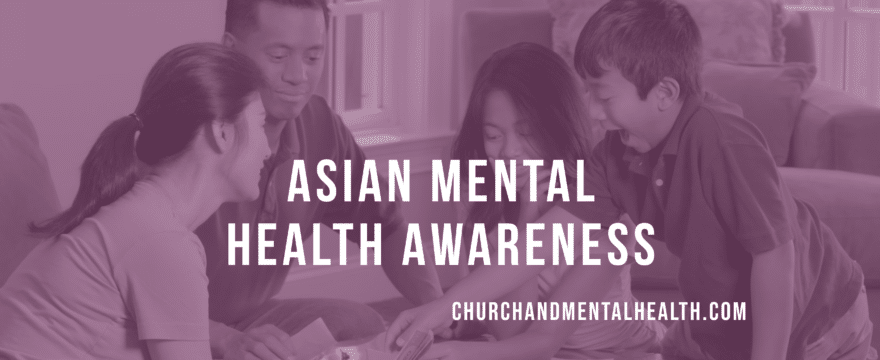Mental health awareness has gained significant traction in various communities worldwide in recent years. We have often covered the topic from different cultures, different age groups, and different developmental abilities.
However, within Asian cultures, discussions surrounding mental health often remain shrouded in silence and stigma. Asian Americans are the least likely racial group to take action on their mental health and are more likely to reach out to friends and family. As Christian counselors, it is crucial to address the unique challenges faced by Asian individuals in navigating mental health issues, especially within the context of the Church, where stigma can be particularly pronounced.
We must also understand what we mean by Asian, as that term is too broad. Many federal organizations recognize the term “AAPI” (Asian American / Pacific Islander), which encompasses a wide range of countries, ethnicities, nationalities, and identities. These can include Hawaiian, Chinese, Laos, Cambodia, Vietnam, and Japanese Americans, among many others. Further, we have found that first-generation immigrants have unique concerns compared to second- and third-generation immigrants.
Statistics of Stigma with AAPI’s Mental Health
We encourage individuals to look at the data and support individuals who are struggling, normalizing the concerns of mental illness and offering a listening ear as well as encouragement for those who are seeking help. We believe that the data can help better understand the concern. Here is some of that data:
- 6% of the United States are AAPI, and 15% of them have reported having mental illness within 12 months. This is a drastically high number.
- Suicidality for AAPI individuals may be lower than the national population for young adults, but it is still as high as 7.7%, with 2.2% having a plan on how they would go through with it. (Mental Health America)
- Asian Americans are 60% less likely to have received mental health treatment as compared to non-Hispanic whites. (U. S Department of Health and Human Services)

What Can We Do To Help?
As Christian counselors, we must recognize and address these cultural barriers to mental health awareness and support within our congregations. Here are some key considerations and recommendations for promoting mental health awareness in Asian communities within our churches:
- Education and Awareness: Start by educating church members about mental health issues and dismantling misconceptions. Provide resources, workshops, and seminars that address the intersection of culture, faith, and mental health. Offer biblical perspectives on seeking help and support for mental health struggles.
Two great resources you should consider: Asian Mental Health Collective, a secular organization dedicated to de-stigmatizing mental health for the Asian community, and Erasing Shame, a Christian podcast designed to de-stigmatize mental illness from DJ Chuang who is open about his mental illness journey with Bipolar disorder. - Normalize Conversations: Create safe spaces within the church where individuals feel comfortable discussing their mental health concerns without fear of judgment or stigma. Encourage transparency and vulnerability, emphasizing that seeking help is a sign of strength, not weakness.
- Cultural Sensitivity: Recognize and respect the cultural nuances surrounding mental health within Asian communities. Understand that certain cultural beliefs and practices may influence individuals’ attitudes toward mental illness and help-seeking behaviors. Incorporate culturally sensitive approaches into counseling and support services.
- Collaboration and Partnerships: Foster partnerships with mental health professionals and organizations that serve Asian communities. Work together to develop culturally appropriate resources, support groups, and counseling services tailored to the needs of Asian individuals within the church.
- Leadership and Role Modeling: Equip church leaders with the knowledge and skills to address mental health issues from a place of compassion and understanding. Encourage pastors and church elders to openly discuss mental health from the pulpit and lead by example when seeking help.
- Prayer and Spiritual Support: Emphasize the importance of integrating faith and spirituality into the journey towards mental wellness. Offer prayer support, pastoral counseling, and spiritual guidance to individuals struggling with mental health challenges while also recognizing the role of professional therapy and treatment.
By taking proactive steps to address mental health stigma and providing support within Christian churches, we can help create a culture of compassion, acceptance, and healing for Asian individuals and their families. Let us commit ourselves to walking alongside our brothers and sisters in Christ as they navigate the complexities of mental health, knowing that God’s love and grace extend to every aspect of our lives, including our emotional and psychological well-being.
